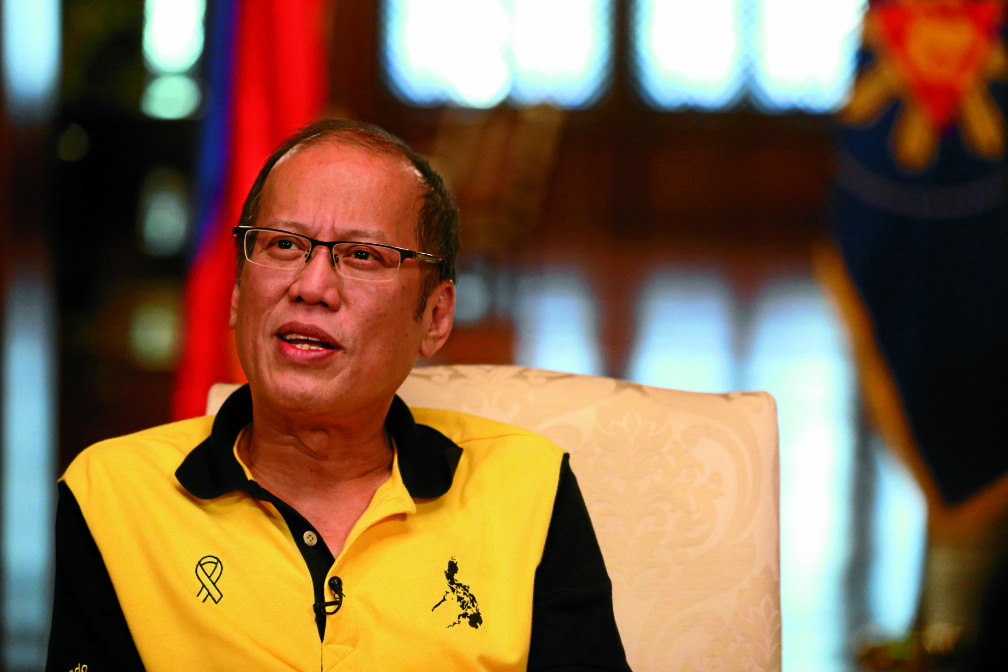
PDI exclusive interview with President Benigno Aquino lll held in Malacanang.
INQUIRER FILE PHOTO/ JOAN BONDOC
TARLAC CITY, Philippines—“Treason?” President Benigno Aquino III said on Thursday before asking if his detractors wanted him to engage in hostilities with China.
“I’d like to hear the specific charge so I can respond appropriately,” he said, referring to the treason and espionage charges filed by supporters of presumptive President-elect Rodrigo Duterte.
The complaint filed before the Office of the Ombudsman earlier this month said Mr. Aquino and Senator Antonio Trillanes IV committed treason when they engaged in “back-channel” talks with China, which claims a large part of the disputed South China Sea.
READ: President Aquino, Trillanes face treason
Aquino, however, explained how difficult it was for the Philippines to take on China by military action.
“What should we do about the dispute? Engage in hostilities?” he said in a mix of English and Filipino.
“If we engage in hostilities there, can we win? Obviously no,” he told Malacañang reporters in this city.
Aquino said there was no need to endanger lives “unnecessarily.”
Aquino even quoted St. Thomas Aquinas and his concept of a “just war.”
“If you engage in war, there has to be that possibility of winning,” he said.
The President said the government, as well as the agreements it has entered into, had always adhered to international law.
He emphasized that international law, which he believes is a great equalizer among nations, should be binding on everybody.
Red lines
Asked if he agreed with security experts who said that Scarborough Shoal, which was among the Philippine territories transferred to the US by Spain, was a “red line” (meaning “a limit past which safety can no longer be guaranteed”), Aquino said, “I think there are so many red lines.”
At the same time, he pointed out that Scarborough Shoal was within the exclusive economic zone of the Philippines.
He said the Philippines had already taken two tracks to address the issue: through the Association of Southeast Asian Nations (Asean) and through international arbitration.
“Now, in ASEAN, in an effort to ease the tensions in this body of water, in 2002, they tried to come up with a code of conduct,” he said.
While the group has failed to establish a code, there is already a Declaration on Conduct of Parties in South China Sea (DOC), which states that parties should refrain from actions that will escalate tensions in the area.
He enumerated several instances when Philippine vessels had issues with China while in disputed areas of the South China Sea.
READ: Chinese vessels ram PH fishers’ boat at Panatag
“Now, their continued presence is something that we have continuously objected to but at the same time…Parang (It’s like) part of that is we want to stress the difference between the Philippines’ and China’s behavior in that we are religiously adhering to the DOC,” he explained.
Aquino said the government wanted to show the contrast between the actions of the Philippines and China.
He added that it would not help the case of the government if Philippine vessels adopted a “confrontational attitude.” RAM/rga

